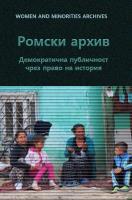
We kindly inform you that, as long as the subject affiliation of our 300.000+ articles is in progress, you might get unsufficient or no results on your third level or second level search. In this case, please broaden your search criteria.


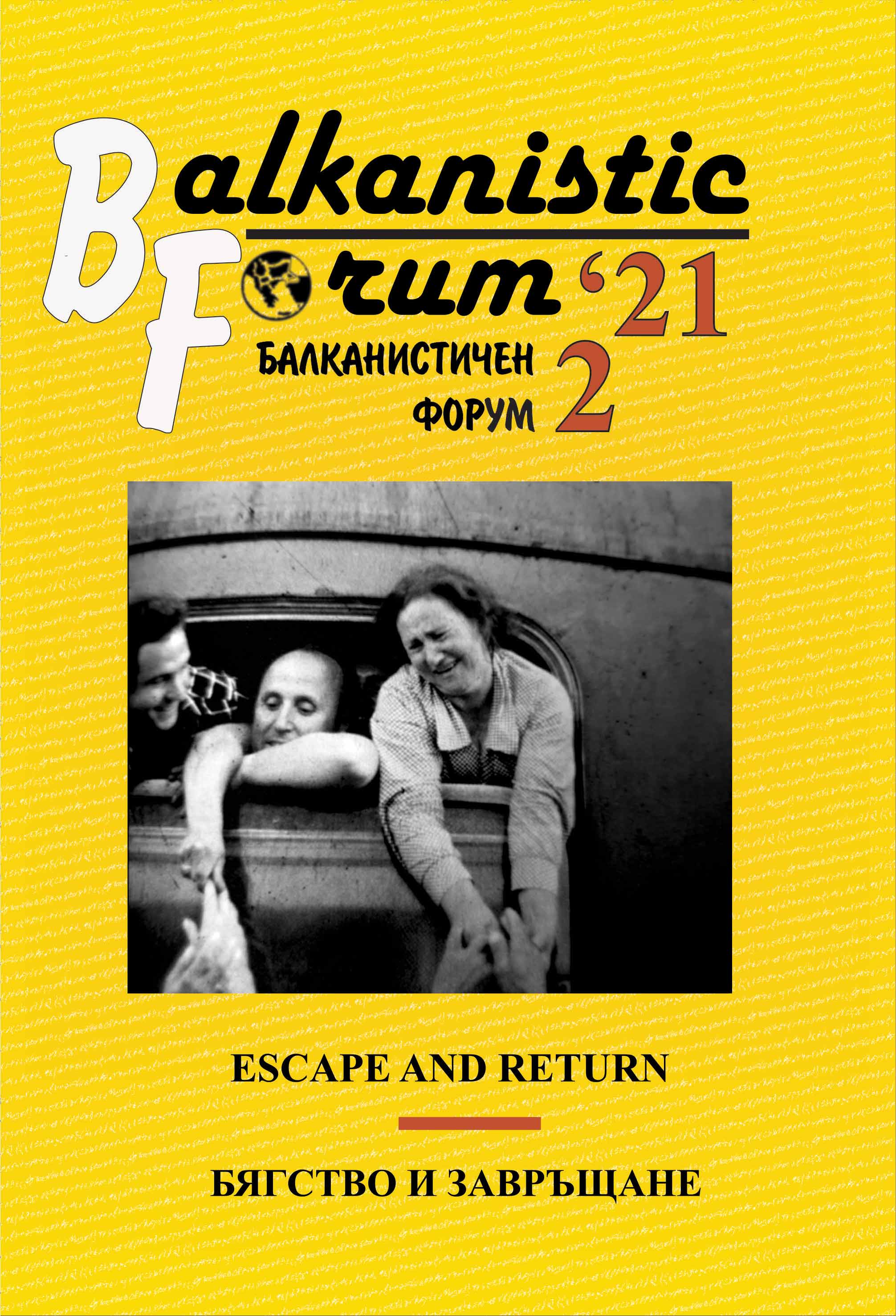
The flow of refugees and displaced people from the present territories of Bulgaria to the Ottoman Empire and Turkish Republic continued more than a century. In the scientific researches the refugee problem usually is considered from the political and historic point of view, the authors basing their studies mainly on official documents, treaties and bilateral agreements, protocols and reports preserved in different archives, in which personal experiences and human stories are lacking. The memories and the impressions of victims and witnesses shared in memoirs and in the press present the most vivid, intimate and realistic human stories. Some of the popular newspapers published testimonies and papers of the eviction from 1969 - 1978 which took place in the frame of a bilateral agreement. Three series of reportages published from the beginning of 1968 to the end of 1969 testified about the realistic attitudes of the Turkish minority, the personal drama of some of its representatives (leaving or staying in the totalitarian state) in the stormiest and full of tension years of negotiation, signing and starting the limited emigration. The aim of this research is to present the public discourse in Turkey about this exodus which have not found proper place in the researches.
More...
Throughout history, war violence has disproportionately affected women, especially in patriarchal societies. Wartime rape, which is the most common and destructive type of conflict-related sexual violence, is the clearest example of these effects. This study clarifies the sexual violence experiences of Yugoslavian women during the Bosnian War, which had lasted between the years 1992-1995, with an anti-militarist feminist perspective. The first part of the article includes hypotheses of feminist theory about conflict-related sexual violence. The second part handles types of sexual violence such as wartime rape, forced prostitution, and forced pregnancy that had affected women in Yugoslavian conflict areas between 1992-1995. The last part of the study describes the numerical dimensions of the sexual violence used in the Bosnian War and its ef-fects on Yugoslavian women. Throughout history, war violence has disproportionately affected women, especially in patriarchal societies. Wartime rape, which is the most common and destructive type of conflict-related sexual violence, is the clearest example of these effects. This study clarifies the sexual violence experiences of Yugoslavian women during the Bosnian War, which had lasted between the years 1992-1995, with an anti-militarist feminist perspective. The first part of the article includes hypotheses of feminist theory about conflict-related sexual violence. The second part handles types of sexual violence such as wartime rape, forced prostitution, and forced pregnancy that had affected women in Yugoslavian conflict areas between 1992-1995. The last part of the study describes the numerical dimensions of the sexual violence used in the Bosnian War and its effects on Yugoslavian women.
More...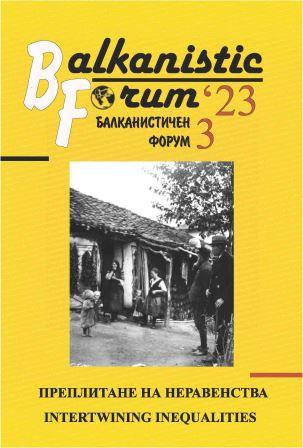
The idea of labour free from exploitation has a fundamental place in communist ideology and was a constant slogan in the public rhetoric of the ‘peoples’ democracies’. This paper aims to examine how labour is defined in the official discourse of state-socialist Bulgaria, how it is associated with the ideas of freedom, coercion, the new communist moral order; and how labour is used as a repressive measure for annihilation the political opponents immediately after the seizure the political power by the Fatherland Front on September 9th ,1944 until the closure of the labour camps in 1962. The juxtaposition of the official state discourse of free labour without exploitation of workers and the people’s accounts reveal whether the ideologemes imposed by the state-party propaganda were accepted and became part of the people's thinking and vernacular memory. My thesis is that the ideologemes of free labour are accepted or at least not problematized in the narratives of the majority of ‘ordinary’ people who lived during the communist regime without being subjected to political repression. The other group, however - the victims of such repression - challenges the regime's propaganda ideologemes of freedom and free labour under socialism, and do so by recounting their own lives and speaking from the undeniable position of witnesses. Thus, in terms of remembering labour, freedom and coercion, the generation born in the 1920s and 1930s is divided into two ‘generational units’ (using Mannheim’s term), that remain on irreconcilable opposing positions.
More...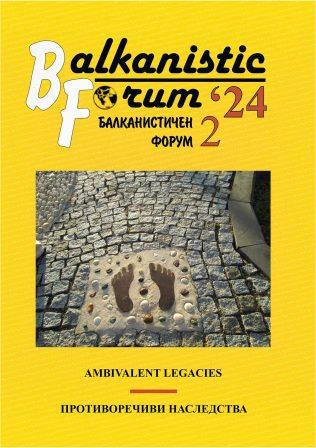
István Bibó (1911-1979), a lawyer and doctor of political science by profession, became a prominent Hungarian political theorist from the late 1930s. He joined the left-wing populist party and became an expert on constitutional affairs for the National Peasant Party. He obtained professorship at a young age and was elected correspond-ing member of the Hungarian Academy of Sciences in 1946. The hereby analyzed work – foregrounded by years of preliminary research – was published in large numbers shortly after the end of World War 2 (1946). Drawing on extensive international theo-retical and historical knowledge, Bibó analyzed the long-term evolution of historical processes in Central-East Europe (addressing the two regions separately and togeth-er), concluding that disruptions in the neighbourhood context, internal conflicts and divisions have been the major factors behind the repeated failures, the „misery” of the small states of the region (Czechia/Czechoslovakia, Poland, Hungary). Despite not being a „Balkan scholar”, Bibó was well acquainted with the advances of interna-tional and particularly Hungarian research, with an outlook to state-building processes in the Balkans and providing particular insights on the states in question. Bibó became notorious for his involvement, his ethical, principled stance demonstrated during the 1956 revolution but his scientific contributions were recognized only after his death with the publication of his works in foreign languages. Bibó’s state and political theoretical approaches and his insights on ethical peace may have particular relevance for the Western Balkans today. A series of unresolved internal issues within the region can create legitimate grounds for external intervention even in present-day circumstances.
More...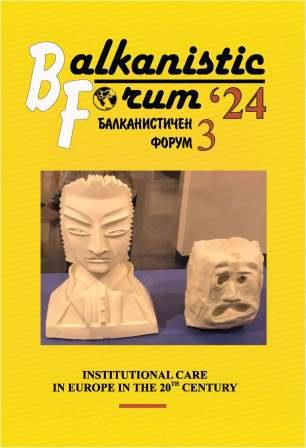
This article explores Albania’s socialist regime’s efforts in addressing post-war societal challenges, particularly housing impoverished elderly individuals in Shkodër’s nursing home. It highlights disparities in the treatment of the elderly compared to children, focusing on their sacrifices and the neglect of their emotional and cultural needs. Healthcare provisions and cultural neglect within institutions like the nursing home are emphasized, underscoring the regime’s differential treatment of age groups. The article reflects on the regime’s privileging of specific categories, the scarcity of medical professionals, and the emotional and cultural void experienced by the elderly, drawing comparisons to practices during the monarchical regime in Albania.
More...
The review presents the international scientific conference “Transformations of Post-war Europe: Medicine, Bodies and Technologies” which was held in Sofia between 27th and 30th May 2024 as part of the project “Taming the European Leviathan: The Legacy of Post-War Medicine and the Common Good” [H2020 ERC-2019- SyG; GAID: 854503], funded by the European Research Council, under the European Union’s Horizon 2020 research and innovation programme, and organized by the Medical Anthropology Department at IEFSEM – BAS.
More...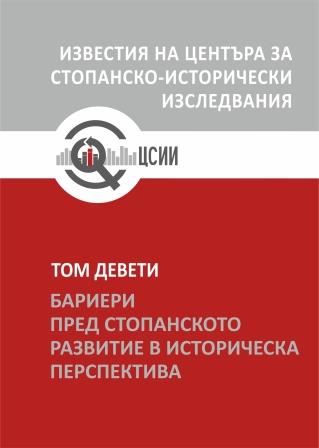
In this study, we consider real prices, real wages, real pensions, purchasing power, and consumption in Bulgaria during communism, transition, and EU integration. We focus on a range of essential goods representative of Bulgarian household consumption. We compile the corresponding data series based on official publications by the Bulgarian statistical authorities. The real values are computed using a unified index of consumer prices for all periods under consideration. We find that the significant increase in nominal incomes during communism, matched by administrative price controls, led to artificially high real wages and purchasing power. As this was achieved in an economy characterised by continuous shortages and accumulating inflationary pressures, we claim that the severe economic downturn and high inflation in the 1990s were inevitable. For transition, we point to the process of restoration of economic logic, the re-equilibration of markets, and the ensuing drop in real incomes as the main causes of purchasing power losses. We argue that this deterioration of real incomes manifests the price paid by society for decades of economic mismanagement. Concerning EU integration, we explain the rapidly increasing real incomes, purchasing power, and consumption with the development of the Bulgarian economy in those years, following the well-established principles of sound economic management. Notably, we demonstrate that at the end of the reviewed period, given the presence of real prices that were very close to their historical lows, real incomes and purchasing power surpassed communist-era peaks. This study contributes to the literature by providing new long term data on important economic indicators for Bulgaria. This paves the way for further research involving comparisons of the past and present economies.
More...
Corruption has attracted the attention of researchers and experts as an obstacle to growth and a burden on public finances. Where the concerned mind sees a threat to good governance, the clever swindler finds an opportunity for profit. The managers of foreign trade in socialist Bulgaria are no exception. Behind the slogans of solidarity with Third World countries, state-owned enterprises that operate openly or covertly abroad deploy a wide network of corrupt dependencies to secure their interests through the generous distribution of “bribes” and “commissions”, two concepts that easily transform into each other. We find abundant documentary evidence of such practices in the court archive of the comprehensive case against the executives of the state-owned commercial enterprise “Texim”. The trial itself shows the contagious example of bribery, which from being a means of influence in foreign countries has settled into the organizational culture of the Bulgarian company, opening the door to various forms of abuse of office.
More...
The use of natural resources, in particular material flows, is not only one of the main drivers of economic growth, but also leads to resource depletion and environmental problems. Existing infrastructure, economic models and technologies, together with established behaviours, keep the economy ‘locked in’ to the linear model. It operates in a one-way pattern of resource – production – consumption – waste. The life of resources in Europe is limited to a single cycle. Today’s economy throws away more and more of the materials we extract from nature, which are increasingly difficult to degrade but have a high residual value when reused. In order to achieve economic growth without increasing the quantitative consumption of mineral resources and without adverse effects on the environment, it is necessary to carry out a decoupling analysis that combines both resource decoupling and environmental impact decoupling. The attempts to overcome the limits to growth, which began in the 1970s, take on new nuances in the context of the environmental transformation of economies today. The aim of this study is to analyse the extent to which the process of decoupling growth from resource dependence is being realised in EU countries and in Bulgaria in particular. Based on a descriptive analysis of the dynamics of the indicators economic growth rate and resource productivity in the period 1980–2020, the results show an albeit slow and uneven positive trend in Europe and a significant lag in Bulgaria. In the face of rising prices and resource depletion, this is becoming an increasingly risky factor for business development. From an economic point of view, therefore, the interest in reducing these costs, using them more efficiently and optimising raw material flows is fully justified. The paper draws conclusions about the place of the circular economy in this process and points to some opportunities for deepening the processes of transition towards a resource–efficient and environmentally friendly economy.
More...
The paper provides an analysis of labour productivity dynamics in Bulgaria in 1970–2019 and assesses the convergence to the euro area in comparison with other CEE countries. Based on the data from Pen world table, we measure convergence by the deviations from euro area average productivity levels and by employing panel models of absolute β-convergence. The results show an increasing tendency in labour productivity, a decreasing trend in its growth rates, the existence of significant peculiarities and internal heterogeneity of the three distinct periods (the last two decades of socialism, the 1990s and the first two decades of the 21st century). It is proved that at the end of the first period Bulgaria was ahead of Romania, Poland and Estonia in terms of labour productivity, at the end of the second period – only of Romania, and in the third period it started to lag behind all other CEE countries. The strongest deterioration in Bulgaria’s relative position over time has been recorded vis-à-vis Romania, and the largest lag in the level by 2019 is vis-à-vis Poland. The results from the estimation of the β-convergence model at 1990 base year indicate the existence of a catching-up process for the countries as a whole and the absence of such a process for Bulgaria. In the 2000-based model, labour productivity in Bulgaria converges with the euro area, but least among all countries in the region. Compared to Hungary, Slovenia and Slovakia, this is a consequence of a lower starting base, compared to Romania – of lower growth rates, and compared to the other countries – of a combination of both.
More...
Bulgaria’s membership in the EU in 2007 is a turning point in our history. Following the slogan “Europe of the Regions”, the country has turned to seeking the right instruments for regional development and planning the spatial concentration of individual industries to meet common policies and standards in the Union. The complex contemporary socio-economic processes and dynamically changing development conditions impose some specific requirements on the scientific justification of political and purely economic decisions. This implies a good knowledge and proper use of the basic models for analyzing trends in the dynamics of the spatial concentration of economic activities and taking into account the characteristic features of the development of the territory concerned. Although more than 15 years have passed since our accession, the differences between the regions are widening. Moreover, Bulgaria is also home to the poorest region in the entire Union. By 2024, there is still a serious gap between the real and the desired picture in this direction. This paper seeks to address this problem through an in-depth statistical and economic study of the dynamics of economic concentration in the country since 2007, with the aim of tracing the dynamics of the spatial location of economic activities. The subject of the study is the spatial and sectoral concentration of enterprises in the country, and the object of study is enterprises and employees in the territory of the country in aggregate form by planning regions and type of activity carried out by sectors of the economy. Through the macro analysis carried out, the existing trends over the years are sought and outlined, and findings on the dynamics of the spatial concentration of the economy in Bulgaria are derived. A chronological approach is used and time constants and variables are identified. The chosen methodology allows to trace the evolution of these dynamics while identifying persistent favorable and/or unfavorable correlations and practices. The approach based on the past will indicate in which directions policy instruments supporting the development of regions should be focused. The results obtained show the systematic absence of national and regional policies to manage the processes of spatial concentration of economic resources in territorial terms.
More...
The socio-economic situation of the town of Karlovo and the surrounding area after 1878 was difficult, and the prospects for economic development were uncertain. The new economic realities and free competition accelerated the process of decline of the old crafts and livelihoods, while the local authorities and the central government failed to support the local craft and textile industries. The transition from proto-industrial to factory production proved unsuccessful in the first decades after 1878, despite isolated successful initiatives. A significant, but not sufficiently studied factor hindering the development of Karlovo and the region during this period were natural disasters, especially water-related ones. This paper will examine the consequences of water-related natural disasters that were a significant barrier to the economic development of Karlovo in the early 20th century. As will be seen, these processes were not isolated only around the Balkan Mountain, but occurred throughout Thrace, north-central and southwestern Bulgaria. In 1905 and 1910, two major water-related natural disasters occurred, causing considerable damage to the population and the underdeveloped economy of the town and the region. The paper traces how and why such devastating consequences occurred, and what measures were taken by local and central government to solve the problem? Were they successful or did vested interests and local power struggles prevailed?
More...
The study presents the professional development of Stefan Pipev –a graduate of the Academy of Economics in Wien, a third generation trader, industrialist and a partner in the brewery Prosek Brothers. The accent is put on the period from 1907 until 1927 when Stefan Pipev was managing the brewery on his own and in a partnership the industry established by the Prosek brothers. He succeeds in keeping the relative rise of the production and modernizes it with new technologies. His management coincides with multiple crisis - a fierce competition between the beer brewers, a lot of bankruptcies, raising excised duty, and the economic disruption caused by the Balkan, the Second Balkan War and the World War I. Despite the unfavourable circumstances the Bulgarian entrepreneur succeeds to fight off the competition and keep the trademark Prosek in the top three brewery industries. For the purposes of the research are studied documents from the State Archive –Sofia and State Archive – Veliko Tarnovo. Despite the low number of scientific and popular publications about Stefan Pipev all of them have been used in the study.
More...
The study is based on the archival fund of the Bulgarrenault Automobile Factory in Plovdiv. Its establishment is part of the attempts of the technologically backward socialist countries to meet the growing demand for cars through cooperation with Western manufacturers. In scientific publications to date, little information is given about the factory and its production, which in some cases is inaccurate. In this regard, the chronology of the foundation and construction of the factory, the duration of the construction works, its area and number of personnel have been clarified. Attention is paid why and how the enterprise was opened in Plovdiv as well as a state-owned agricultural holding existed on its place earlier. Another little-known fact is that during the first six months, the assembly of cars was carried out on a temporary assembly line in Hall No. 10 of the International Fair in Plovdiv. Until the factory entered full operation at the end of 1967, cars were assembled using the SKD system, which has so far remained unnoticed. It was claimed that the cars were fitted using the CKD system. However, this happens after the factory is opened. Until then, cars were sent from France in sets of 10 and assembled on the temporary line. When the factory is operational, the sets start at 50 cars each. The demand is high, but the Bulgarian state does not support the production. For the entire period, 6,995 cars were produced. The factory, which costs about three million BGN, works far from its capacity and produces an average of 123 cars per month, which is almost a manufactory. The closing of the factory in 1976 after unsuccessful attempts Bulgarrenault to be replaced with camping trailers and gasoline engines, means a missing of valuable chance for development of a modern Bulgarian automotive industry.
More...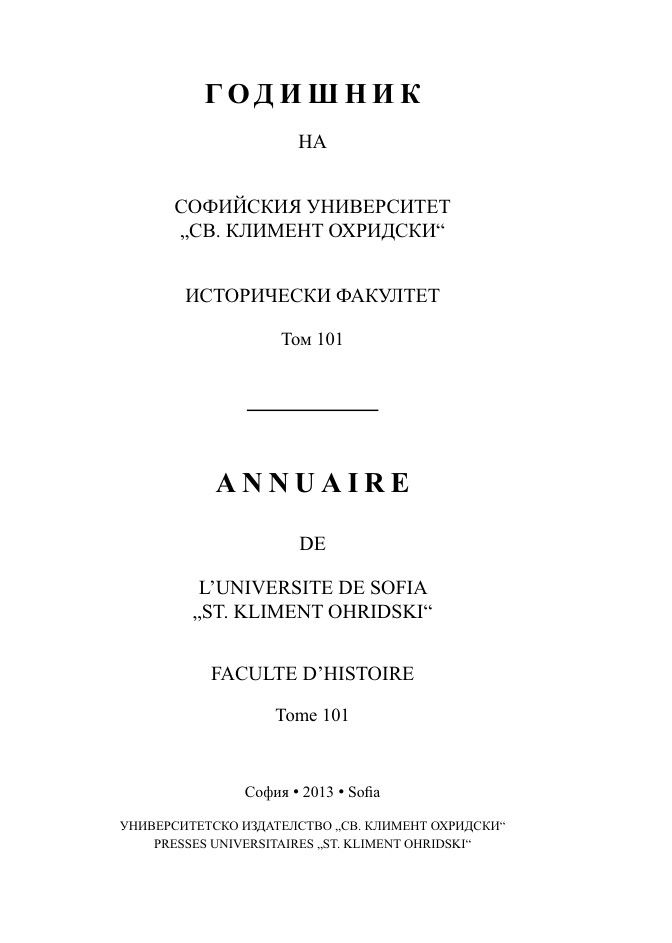
The invention of the mechanical clock was one of the most signifi cant technological advances which brought about European world hegemony. Starting with the clock towers which gradually became an indispensable element of Balkan town landscape and sound environment during the 17th and 18th centuries, and reaching the climax of mass imports of pocket or wrist watches from Central Europe during the early 20th century, the transfer of the new technology to Europe’s Southeastern periphery not only changed the system of time measurement, but was also related to the concomitant important cultural shifts in the perception of time, most importantly the transition from time obedience to time discipline. Focusing on present day Bulgaria and using mostly Bulgarian sources, the paper offers an overview of the abovementioned process, tackles the ensuing theoretical and methodological questions and outlines an approach to the study of this particular case of cultural transfer.
More...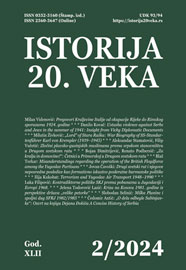
Review of: Amir Obhođaš, GLAVA ZA ZUB: TALIJANSKO-ČETNIČKA SURADNJA U NDH, Zagreb, Hrvatski državni arhiv, 2023, 284.
More...
Review of: Драгомир Бонџић, РУСКИ ЕМИГРАНТИ ПРОФЕСОРИ БЕОГРАДСКОГ УНИВЕРЗИТЕТА, Београд, Архипелаг, Институт за савремену историју, 2023, 500.
More...
Review of: Владимир Кривошејев, Раде Ристановић, ОКУПИРАНА КУЛТУРА: НАЦИСТИ, КОЛАБОРАЦИОНИСТИ, МУЗЕЈИ И КУЛТУРНА ДОБРА У СРБИЈИ ТОКОМ ДРУГОГ СВЕТСКОГ РАТА, Београд, Друштво за урбану историју, 2023, 298
More...